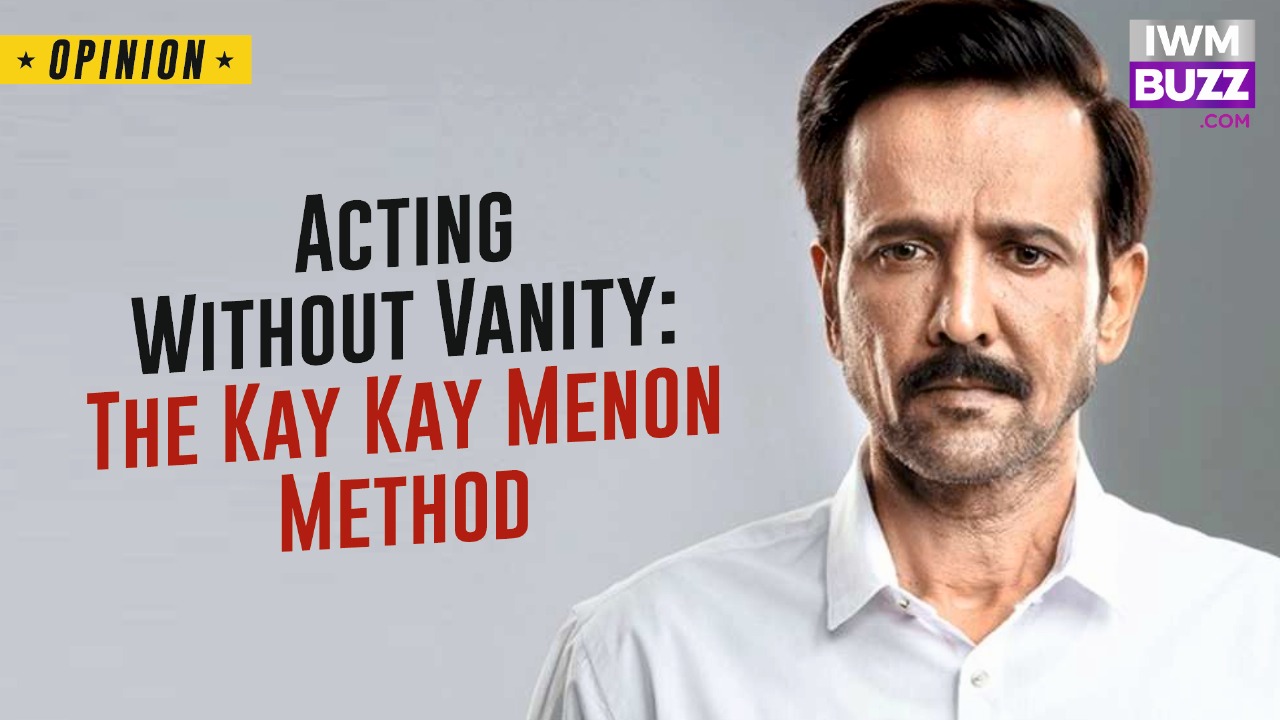Kay Kay Menon is the cinematic merger, if that is how we could precisely define him. The polarisation of the industry has been long time evident—dominated by two cinematic traditions, stardom and then of course the art house cinematic muse we see in the festivals. There, Kay Kay Menon occupies a middle ground. He fits squarely in neither of the two divides.
He doesn’t go by the industry-designed stardom, the marketing sheen, and the self-mythologizing machinery. Yet, to call him merely an “indie” actor would be to underestimate his reach and resonance. Menon signifies what we might call the “third space,” a cinematic territory that draws from the craft-first ethos of independent cinema and the communicative clarity of commercial films. His work is accessible without being reductive, and intellectually charged without being esoteric.

The actor has been front and centre in widely consumed, commercially successful projects, including Neeraj Pandey’s Special Ops, Baby, and Haider. These are not fringe appearances; they are crucial roles in stories that reached millions. And yet, Menon never feels like he’s pandering. He resists the over-stylised posturing that often accompanies mainstream characters. It’s been his raw updo, well, always!
Himmat Singh is taking all the heights, like it should. But if we look at his other dimensions, it’s always his unflinching gravity that speaks in and out. If we talk about Haider, his performance is marked by subtle gestures, a knowing smile, and moments of unsettling tenderness, making Khurram both human and haunting. Menon’s ability to balance the character’s moral ambiguity with genuine emotional depth is what elevates the role, turning a political betrayer into a tragic, almost empathetic figure, one that lingers long after the film ends. His characters often seem to carry hidden histories, or philosophies that go unspoken yet felt. This intellectual layering invites audiences to pause and reflect, even when the pace of the story rushes forward. So, there is this provoke. A vigorous provoke to make you think.
And that’s what we define as the third space. In this third space, vanity, often the currency of both the star system and festival showmanship, finds no purchase. It is here that Menon’s method unfolds: stripped of affectation, fiercely committed to character, and unsentimentally anchored in truth.
And therefore, he gets us into repetition. We return to his performances not for the spectacle, but for the subtlety they may have missed the first time. He doesn’t sell a brand; he builds a legacy. His is a fame rooted in credibility, not crowd-pleasing gestures.

